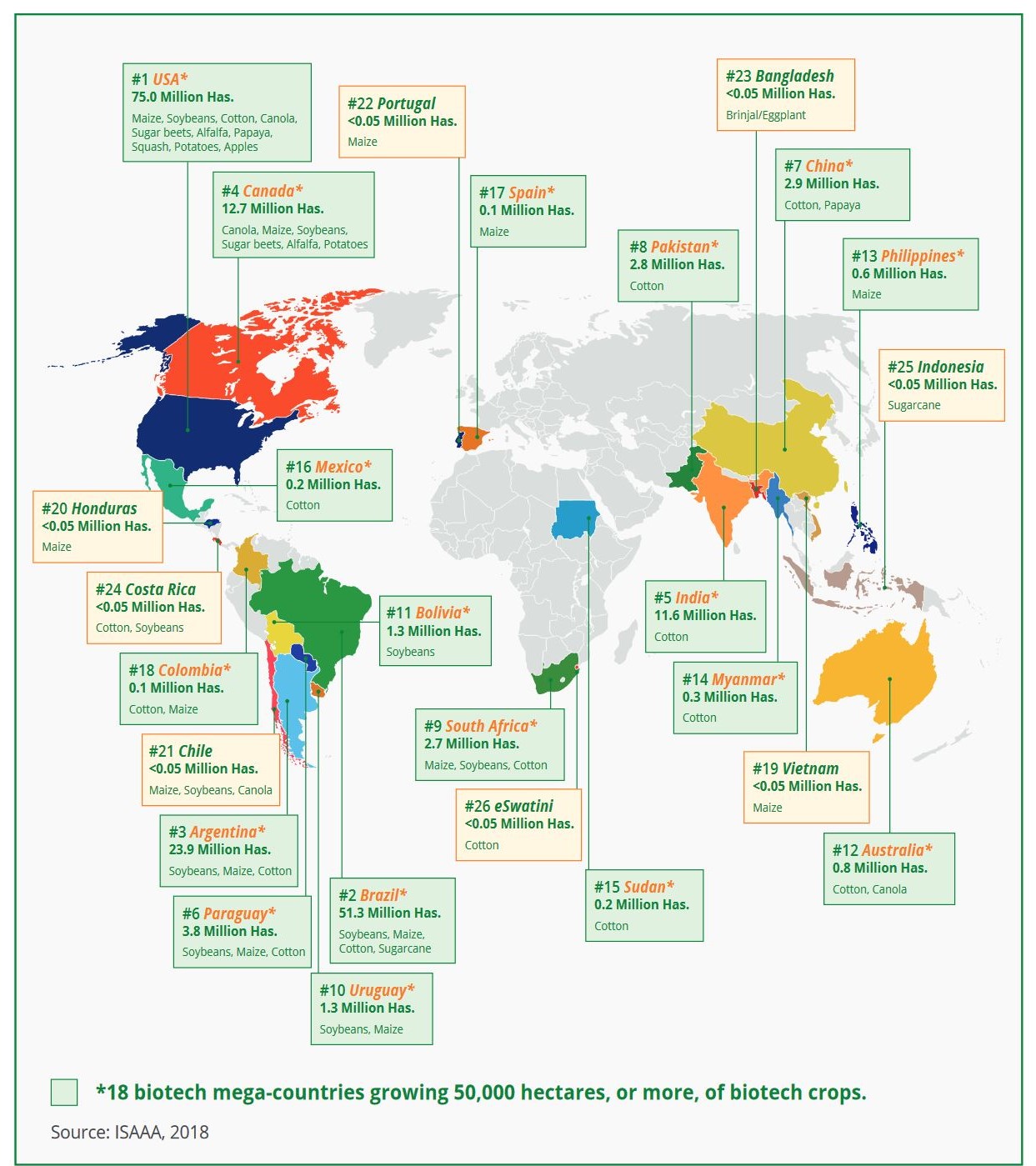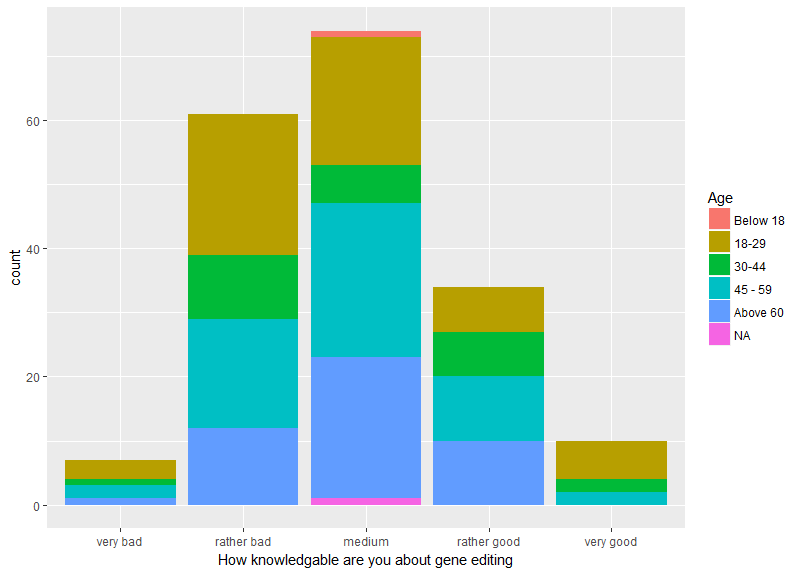|
|
| Line 713: |
Line 713: |
| | breeding research, industry, ethics research and genetic engineering critics should give the public | | breeding research, industry, ethics research and genetic engineering critics should give the public |
| | an insight into the different breeding methods and the according viewpoints of different | | an insight into the different breeding methods and the according viewpoints of different |
| − | stakeholders. After a keynote lecture by biochemist Prof. Dr. Lars-Oliver Essen from Philipps | + | stakeholders. After a keynote lecture by biochemist Prof. Dr. Lars-Oliver Essen from the Philipps- |
| − | University in Marburg the panel discussion started. It was moderated by Michael Lange of "Forschung | + | University of Marburg the panel discussion started. It was moderated by Michael Lange of "Forschung |
| | aktuell" from Deutschlandfunk and team member Paula Mueller. The energetic audience, in which all | | aktuell" from Deutschlandfunk and team member Paula Mueller. The energetic audience, in which all |
| | age groups were represented, soon actively took part in the discussion, asked questions and | | age groups were represented, soon actively took part in the discussion, asked questions and |
| Line 743: |
Line 743: |
| | Most of the panelists agreed that genetic engineering offers opportunities, especially in | | Most of the panelists agreed that genetic engineering offers opportunities, especially in |
| | agriculture, to address challenges such as climate change or the nutrition of the growing world | | agriculture, to address challenges such as climate change or the nutrition of the growing world |
| − | population. According to the introductory statement of Prof. Dr. Andreas Weber from the Plant | + | population. According to the introductory statement of Prof. Dr. Andreas Weber from the Cluster of Excellence on Plant |
| − | Science Excellence Cluster at Heinrich-Heine University in Düsseldorf, methods of genetic | + | Science at Heinrich-Heine University in Düsseldorf, methods of genetic |
| | engineering such as CRISPR are already established tools and have no cause for concern, particularly | | engineering such as CRISPR are already established tools and have no cause for concern, particularly |
| − | in basic research. But subsequently, modified organisms cannot be tested in the field under natural | + | in fundamental research. But subsequently, modified organisms cannot be tested in the field under natural |
| − | conditions. However, the objective testing and checking of modified plants is a problem, because | + | conditions. However, the objective of testing and checking modified plants is a problem, because |
| − | often independent testing organisations would not have access to certified seeds and the complete | + | often independent testing organisations do not have access to certified seeds and the complete |
| | data used in the designing process, replied Dr. Christoph Then from testbiotech e.V.<br> | | data used in the designing process, replied Dr. Christoph Then from testbiotech e.V.<br> |
| | <br> | | <br> |
| Line 755: |
Line 755: |
| | established breeding methods, the product should be the basis of the review, argued Daniel | | established breeding methods, the product should be the basis of the review, argued Daniel |
| | Stukenberg, representative of the party "The Humanists". A point of view with a drastically | | Stukenberg, representative of the party "The Humanists". A point of view with a drastically |
| − | different background, here represented by ethics professor Dr. Friedemann Voigt, put the consumer in | + | different background, here represented by ethics professor Dr. Friedemann Voigt, put the consumers in |
| − | the foreground and demanded its right to know how a food is produced. This led the discussion | + | the foreground and demanded their right to know how a food is produced. This led the discussion |
| − | further in the direction of the effects of genetically modified feed on farm animals and the human | + | further in the direction of the effects of genetically modified animal feed on farm animals and the human |
| | consumer. At this point, Dr. Christoph Then criticised the sharp decline in risk research, which | | consumer. At this point, Dr. Christoph Then criticised the sharp decline in risk research, which |
| | pursues society's protective goals with regard to health.<br> | | pursues society's protective goals with regard to health.<br> |
| | <br> | | <br> |
| − | The podium also separated into simple gene edited and transgenic organisms. While gene edited plants | + | The panel also separated into simple gene edited and transgenic organisms. While gene edited plants |
| | do not contain genes from foreign organisms, such genes in transgenic plants can, for example, | | do not contain genes from foreign organisms, such genes in transgenic plants can, for example, |
| | provide certain ingredients that make them resistant to pests or insecticides/herbicides. Transgenic | | provide certain ingredients that make them resistant to pests or insecticides/herbicides. Transgenic |
| Line 768: |
Line 768: |
| | approval of the audience, which was expressed by strong applause. Transgenic plants could not | | approval of the audience, which was expressed by strong applause. Transgenic plants could not |
| | develop in a natural way and should therefore not be used in agriculture. At the moment, however, | | develop in a natural way and should therefore not be used in agriculture. At the moment, however, |
| − | the use of genetically modified plants in organic farming is also not in compliance with the | + | the use of genetically modified plants in organic farming is also not in compliance with |
| | regulations, according to Freya Schäfer of FiBL (Research Institute of Organic Agriculture).<br> | | regulations, according to Freya Schäfer of FiBL (Research Institute of Organic Agriculture).<br> |
| | <br> | | <br> |
| Line 777: |
Line 777: |
| | alt="Placeholder image"> | | alt="Placeholder image"> |
| | <figcaption> | | <figcaption> |
| − | Fig.2 - Recording of the panelists in the middle of arguing with the viewers. | + | Fig.2 - Recording of the panelists in the middle of arguing with the viewers. Members of the panel are (left to right): Paula Müller, Prof. Dr. Friedemann Voigt, Dr. Claus Kremoser, Daniel Stukenberg, Freya Schäfer, Dr. Christoph Then, Prof. Dr. Andreas Weber and Michael Lange. |
| | </figcaption> | | </figcaption> |
| | </figure> | | </figure> |


















